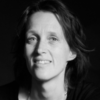
Background
I am the Principal Investigator of Living on the Other Side, a NWO-funded socio-legal research project focusing on the lives of migrants who reside in Morocco. With a background in Anthropology, Arabic, and Law, my research has long focused on major life events within the Middle East and North Africa. Over time, however, I began to feel that the scope of my work had become too narrow, with most attention focused on marriage, divorce, and female Muslim citizens. That’s why I am especially pleased that this project allowed me to also explore a life event often overlooked in socio-legal studies in this region: how people deal with death and burial, particularly among migrant communities.
New ways of doing fieldwork
Researching such sensitive themes is never easy, and the outbreak of the pandemic made things even more challenging. Just months before our carefully planned fieldwork was due to begin, access to the field was abruptly restricted. However, this disruption also brought unexpected freedom, opening new avenues to redefine fieldwork. It led to the formation of new networks and the incorporation of new team members and countries -the Netherlands and Lebanon- into the project. While Morocco remains the primary focus, adding a comparative perspective has been both rewarding and illuminating. For me, fieldwork will never be the same again. You can read more about it -and watch it unfold here!
Going down
Another significant challenge was producing audio-visual content. While I have long been an enthusiastic amateur photographer, I had little experience with video, especially with editing and creating engaging narratives. I’m very thankful to have worked alongside Shirley, whose expertise was invaluable. Through the process, I gained many technical skills and am now able to create my own videos -something I’m proud of.
My very first video remains the one I’m most proud of. It’s called Going Down, and I made it during the surreal early weeks of the Covid lockdown. The days were marked by unusually beautiful weather and long hours spent in the garden with my young children. Yet, at the same time, I was denied access to my office and had no proper workspace at home. I felt professionally unanchored, almost homeless, and the video reflects that strange, disorienting period.
A favourite memory?
I don’t have a single favourite memory, but one thing I will never forget is the phrase chercher la vie -“to search for life”- which so many migrants shared with me. At its core, it expresses a universal pursuit: the search for meaning and joy in life. I found it deeply moving that our respondents held on to this idea so strongly. It made me reflect on the privilege we often take for granted -the ease with which many of us travel for leisure, work, or education- while others are denied those opportunities, often by those who have plenty of them. And yet, despite the often difficult circumstances in Morocco, many respondents continue to chercher la vie, even when it means risking their lives. Tragically, others lose hope altogether and die by suicide.
Moments that stand out?
There are two moments that stand out. The first is the relief I felt when one of the respondents I had interviewed gave birth to a healthy child. I’m still in touch with her and take great joy in watching her child grow up.
The second moment came at the end of our research project, when our team returned to Morocco one final time. It was not purely a happy visit as one of the respondents had passed away unexpectedly. We met with his wife and other members of the community for a gathering where we shared the results of our research and commemorated his life. It was a moment that blended both joy and sadness, creating something uniquely profound. Through stories, meals, and drinks, we experienced a powerful sense of togetherness.
Future wishes?
My wish for the future is that the graves of those buried in near anonymity will be properly documented and maintained. These individuals had names, histories, and dreams for the future -just like us.
